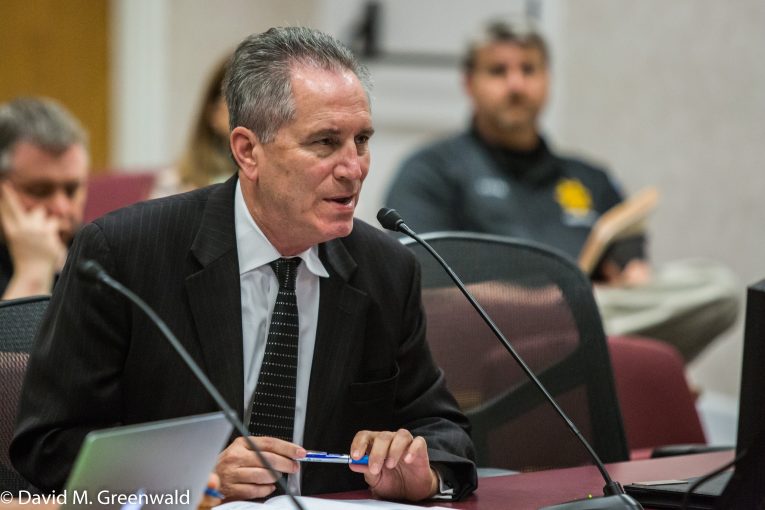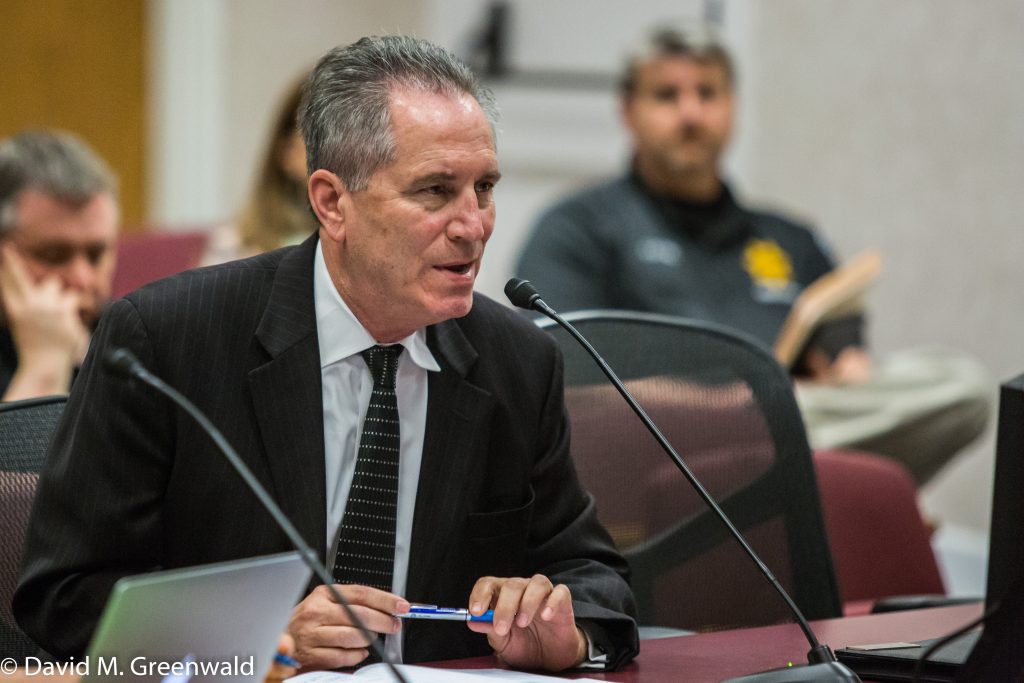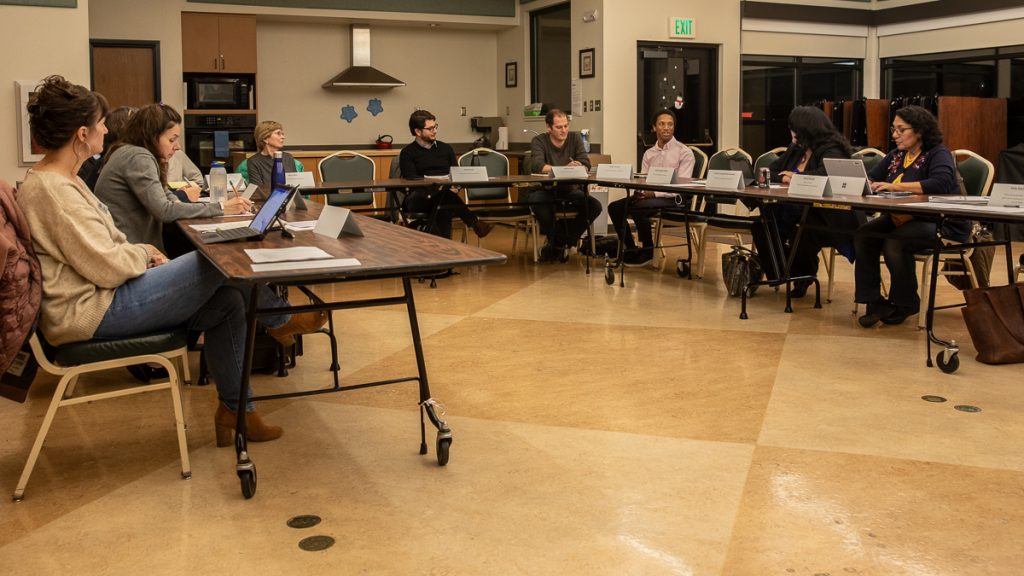

On Tuesday, the Davis City Council is expected to approve a consent item that would name Michael Gennaco, currently the interim police auditor, to fill the full time position following a recommendation by Police Accountability Commission liaisons Gloria Partida and Lucas Frerichs.
In 2006, the city of Davis hired Bob Aaronson as its police ombudsman following a contentious process that resulted from several high profile police complaints. The time of turmoil was punctuated by frequent protests and counter-protests in city hall that eventually led to the temporary shutdown of the Davis Human Relations Commission and the resignation in June 2006 of then-Police Chief Jim Hyde.
The hiring of Landy Black (2007) as chief and Mr. Aaronson ushered in calmer times. But in June 2017, Mr. Aaronson did not renew his contract after 11 years with the city. Coincidentally at the same time, in April 2017, the Picnic Day incident occurred where the city claimed in a press release that five individuals – all of them people of color – had clashed with three police officers.
That led to changes to the police auditor position and eventually the creation of the Davis Police Accountability Commission (DPAC). Mr. Gennaco was brought in to audit the independent report by McGregor Scott.
In a 23-page report from Mr. Gennaco, he hammered the officers for their approach to the crowd and their use of profanity, and he criticized Police Chief Darren Pytel for putting out an inaccurate press release.
However, the complaint of use of excessive force and biased-based profiling was not sustained.

Mr. Gennaco wrote that “the ‘plan’ the involved officers had initially devised to clear the crowd was inherently problematic, and it largely set the stage for what happened next.”
He added that “while it is fair to say that the aggressive response of some members of the crowd towards the van occupants was also problematic – and formed the basis for subsequent criminal charges – a more thoughtful approach by the involved officers in addressing the blockage of the roadway would likely have limited (or) averted the resulting clash.”
At the same on Wednesday, the DPAC held its organizational meeting before meeting on Thursday for its first regular meeting. The DPAC will meet every first Thursday of the month starting next week at 6:30 pm.

On Wednesday, the DPAC named Judith MacBrine, who had overseen the creation of the Alternative Conflict Resolution process for the police department a few years ago, as chair and Dillon Horton as Vice Chair.
The charge of the commission will be to, among other things: develop a community outreach plan, and provide input to audit Davis Police Department policies, procedures and training.
They can also recommend changes and improvements to policy, procedure, or training, review Independent Police Auditor reports on misconduct complaints, provide input into reports, assess the work of the auditor and respond to Davis Police requests for input.
Appointees to the commission include Mary Bliss, Sean Brooks, Cecilia Escamilla Greenwald, Dillon Horton, Abram Jones, Elaine Kahan, William Kelly, Judith MacBrine, Keisha Liggett-Nichols (alternate) and a UC Davis student appointment by ASUCD.
There was a brief discussion Wednesday about expectations and the role of the commission.
Mayor Pro Tem Gloria Partida, one of two council liaisons to the DPAC (Lucas Frerichs is the other, but he attended the hearing on Mace Blvd. instead), noted that people need to know what their expectations are. She said that “people need to feel that they have been heard, that their issue has been resolved, that they have been empowered, and that their community has served them.”
Cecilia Escamilla Greenwald, who was chair of the HRC Commission which was shut down in 2006, said that this needs to be a “body that the public feels comfortable coming to and voicing their concerns.”
Sean Brooks added that they need to create processes to make it predictable how complaints will be handled. “So they don’t feel like they’re shouting in the void,” he explained. “One of the ways for us to do that effectively is to work together.”
For Mary Bliss the process was about creating “trust” and bringing things forth so that people who don’t come to meetings can stay in the loop. “We need to build trust in this community around this issue,” she explained.
Dillon Horton, who would later be named as Vice Chair, pointed out, “A lot of people of different backgrounds are dissatisfied with the service they receive from the police.” He was quick to point out that these individuals are not necessary “anti-police” but they do feel dissatisfied.
Will Kelly, who got involved in the Picnic Day issue, stated, “I think it’s safe to say that this commission was created because things weren’t going well.”
For him, “The work we’re doing is to reform the institution to broaden its mission.”
He sees the need to shine a light and create transparency in the eyes of the public. He would add that they need to go beyond singular incidents to look at patterns in policy and data driven kinds of analysis.
“Public safety is a critical responsibility of local government, and I am looking forward to moving our community into a new place around police and community relations,” said Mayor Pro Tem Gloria Partida in a release earlier this week by the city.
—David M. Greenwald reporting


Glad the city is going forward with this